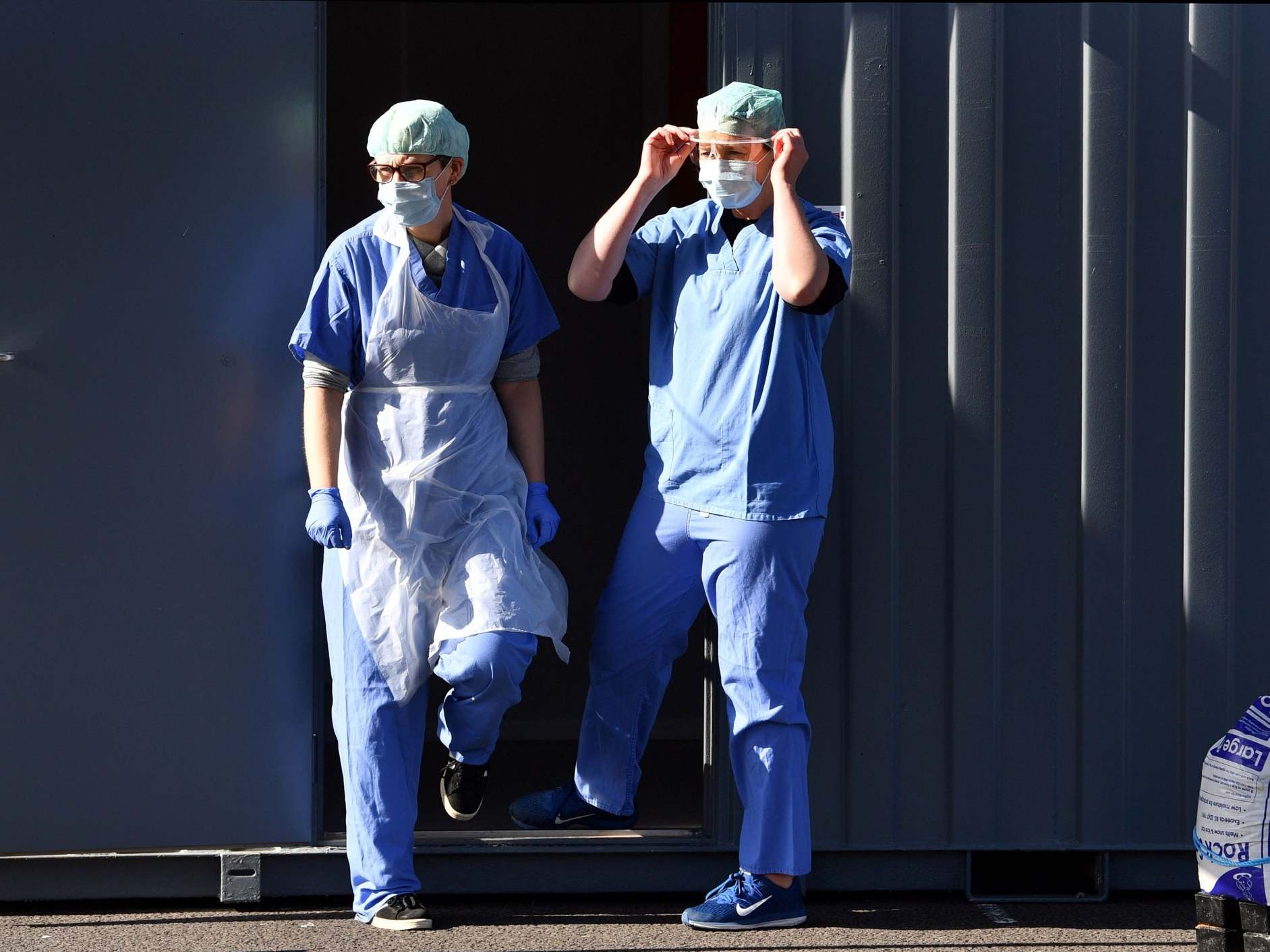Coronavirus: Three-quarters of public favour working with EU to get vital protective equipment
Exclusive: Brexit divisions put aside in the face of the pandemic

More than three-quarters of the public think the UK should participate in EU schemes to secure vital protective equipment, as it emerged ministers passed on three opportunities to take part.
A new poll by Focaldata for Best for Britain found that 77 per cent of people favoured staying in the European Medicines Agency (EMA) and other EU agreements to help battle the coronavirus outbreak.
Brexit divisions have been put aside in the face of the crisis, with 57 per cent of Leave supporters favouring working with Brussels to help the UK buy and develop medicines, vaccines, tests and protective equipment.
The move also attracted cross-party support, with 6 out of 10 (62 per cent) Conservative voters backed working with the EU, as well as 37 per cent of Brexit Party supporters.
Nearly 9 out 10 (88 per cent) of Labour voters agreed, rising to 95 per cent among Liberal Democrats.
It comes amid reports the UK missed out on three chances to participate in EU schemes to bulk buy personal protective equipment (PPE), which is subject to huge demand from NHS and care staff battling the virus.
Downing Street previously claimed it had failed to join the scheme due to a missed email, but it has now emerged that British officials in Brussels took part in four meetings in March during which bulk-buying was discussed, according to EU minutes reported by The Guardian.
Three rounds of procurement have since taken place, with European medics preparing to receive the first batch of €1.5bn (£1.3bn) of PPE within days. The European Commission says it is receiving more kit than it ordered.
Therese Coffey, the work and pensions secretary, insisted that the government had “sufficient stocks” despite warnings by medics and care workers of a shortage of equipment such as gloves, masks and gowns.
“The government has made an assessment that by joining the schemes, it wasn’t going to make any particular difference to the procurement of PPE,” Ms Coffey told LBC radio earlier this week.
“That’s still our basis of whether or not we attended a meeting in February or whether we attended the meeting in March. That’s still the outcome.”
But Naomi Smith, chief executive of Best for Britain, said: “We cannot go on like this. The medical professionals who are risking their lives to save others deserve much better.
“The government must take every opportunity it can to source important medical supplies and urgently seek participation of collaborative EU efforts if they can deliver the PPE we need.”
Layla Moran, Lib Dem MP and leadership candidate, told The Independent: “At a time when NHS staff are facing shortages of life-saving equipment, it is simply unforgivable that opportunities to take part in these EU schemes were missed.
“Serious questions will have to be answered in due course about whether this occurred as a result of ideology or incompetence.
“For now the focus must be on ensuring the NHS does not miss out again in future. Ministers must therefore urgently clarify whether the UK will participate in future EU schemes to secure the equipment our health service needs.”
High noon in a coronavirus-stricken world
Show all 18Meanwhile, British and EU negotiators have agreed to stage further talks on a post-Brexit trade deal as the government insists on pressing ahead with its Brexit timetable.
David Frost, the UK’s chief negotiator, and his EU counterpart Michel Barnier met by videolink on Wednesday, where they agreed to continue trade talks remotely, with regular virtual meetings scheduled over the next three months.
In a joint statement, both teams said “real, tangible progress” was needed by June on hammering out the major trade agreement needed to prevent a no-deal crash out at the end of the year.
A crunch meeting will be held in June to “take stock of the progress made” as any extension to the transition period must be made by July.
Boris Johnson has repeatedly refused to countenance a delay – despite the pressures of the coronavirus outbreak, which has decimated the negotiating teams. Mr Barnier contracted coronavirus and has now recovered, while Mr Frost was forced to self-isolate after displaying Covid-19 symptoms.
Focaldata polled 2,093 UK adults online between 7-9 April. Data is weighted
Subscribe to Independent Premium to bookmark this article
Want to bookmark your favourite articles and stories to read or reference later? Start your Independent Premium subscription today.

Join our commenting forum
Join thought-provoking conversations, follow other Independent readers and see their replies